Andy Bossley, a 29-year-old Texan, is living the dream in New York City. He’s out and proud, lives with his loving partner Anthony, and works as the senior manager for global marketing campaigns for IBM, a role that netted him a spot on the Forbes 30 Under 30 list this year.
While hard work and success has always been in his blood — he spent his entire youth training and competing as one of the nation’s top elite gymnasts — Bossley hasn’t always been so open and comfortable with his sexual identity. Despite knowing he was gay at a young age, he kept this part of himself hidden for most of his life, bypassing countless opportunities to come out because he felt the risks were just too high.
“It’s hard, especially when you’ve set yourself down a certain path and you have this idea of who you think you’re supposed to be, and certainly who you think your family wants you to be,” Bossley says.
“I always felt like that was one of the barriers for me, or one of the walls I always felt like had to traverse on my own journey. You just wonder what everyone’s going to say or think, especially if you’ve been relatively successful in your life and your career and love. And you find yourself at a moment where you’re like, ‘I’m not happy and I don’t really like where I am or who I identify as.’ Then you have all these expectations that you’re afraid you’re going to let down.”
But Bossley eventually took the leap and came out while studying abroad in Paris during college, and fortunately, he was met with acceptance and support from his loved ones. Now that he’s been out for many years and has gained confidence in his identity as a gay man, he’s come to understand his struggle as a defining experience that actually makes him a better and more compassionate marketer.
Read on to learn about Bossley’s struggles to come out as gay, how he finally got the courage to live his truth, and how it’s helped him in his career.
Profiles in Pride: Can you tell us about your journey of coming out as gay?
Andy Bossley: Let’s start at the beginning. I knew I was gay by at least fourth grade. I was probably 10 or 11. I can remember being in elementary school for sure, because there was this one guy I had the biggest crush on in fourth or fifth grade. So I knew I was gay from a pretty early age.
Something that was a huge part of my childhood was gymnastics. I was an elite level gymnast, and I grew up working out six days a week, four to five hours a day. And I ended up getting to sixth in the nation. I mean, I absolutely thought for most of my childhood, and even into my adult life, that I’d be attempting to go the Olympics. I’d competed at Junior Olympics, the national championship, tons of things. It was a huge part of my existence. And because of that, obviously with most kids who have a commitment like that from an early age, it definitely shaped and molded my perception of who I was and what was important to me. Some of the things that people say during that experience have massive effects on you later on in life, and you don’t necessarily realize it.
One of the most important ones that makes sense to tell in this context would be that my gymnastics coach was immensely homophobic. He would make comments about taking all of the gay people in the world and putting them on an island and nuking it. This was to children, more or less. To someone I certainly looked up to, I certainly trusted.
I still to this day look back and feel that it probably is stemming from his own insecurities of who he is and who knows what else, potentially his own sexual orientation. But that had an immense impact on me and shaped my feeling about who I was, and whether I felt comfortable coming out while I was still in that world, certainly while I still interacted with him and the rest of my teammates.
When I was like 18, I finally quit gymnastics. I just completely burned out. That six days a week, four to five hours a day just became too much. I was accepted into a number of collegiate programs all around the U.S., one of them being Westpoint.
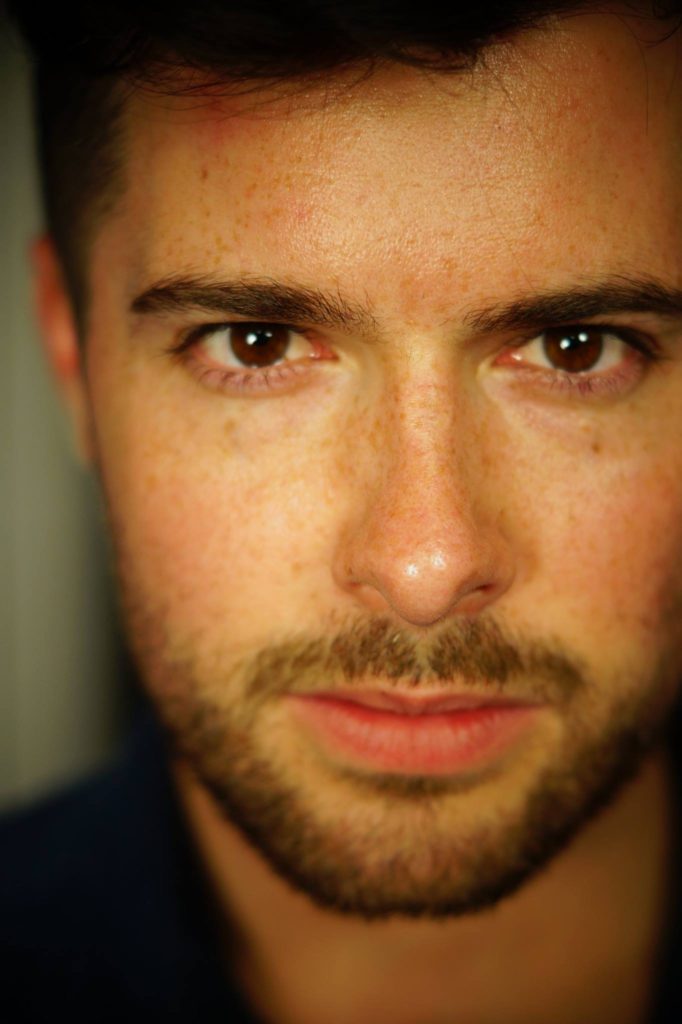
I remember having the conversation with my mom at the time about Westpoint. I wasn’t out at this time, and I remember her asking, would you rather be in the military or not? And in my mind, I’m like, what the hell am I gonna do if I go into the military? Because at that point, it was still Don’t Ask, Don’t Tell, and I wasn’t sure if I wanted to continue gymnastics or not. So I’m sitting here just wondering, am I about to set myself again down a path that’s going to make this even harder on me?
For a number of reasons, number one being that I was burned out and wanted to quit gymnastics, I attended University of Texas in Austin. I lived in Austin, but I moved out of my parents’ house and went to the dorms. I just remembered thinking that the second I got to college, oh my god, I’m gonna finally be in a new lifestyle at a new place, not know many people, and I’m gonna be able to come out. I’m gonna be able to do it. And it just didn’t happen.
PIP: What was it like once you got to college?
AB: I had roommates who were a bunch of bros; they were all on the basketball team for UT, which is not as big as the football team, but still a pretty big deal. They were sophomores and I was the only freshman, in a suite with three other guys.
So once again, I allowed peoples’ expectations and caring what people thought of me to dictate whether or not I felt comfortable or not with who I was. It’s amazing how that can happen, how there were these three guys I don’t even know or care to even be friends with, but I cared what they thought, and I cared enough to let it set me back. And because I’m from Austin, I ended up hanging out with my same high school friends my freshman year of college, so I never even left my same group.
So when I started at UT, and then had the same lifestyle, I couldn’t come out. So it just perpetuated.
Once you don’t make that leap of faith, it slowly becomes day after day, week after week, harder and harder to make that decision.
I found myself two years later at UT still in the closet. I was just devastated by that; I still hadn’t been able to do it.
Through those two years, I ended up discovering I had a passion for studying French and ended up deciding that I was going to actually major in French for my undergrad. As part of that major, I decided I’m going to move abroad to Paris for a year. And 100% that decision was made so that I could come out.
PIP: Were you able to come out once you moved to Paris?
AB: I moved to Paris, and once again, I again could not come out. I couldn’t do it. And I didn’t know a single human being when I moved. I ended up making fast, close friends, friends who are my absolute best friends in the world now, and I couldn’t do it. I couldn’t do it!
Looking back, it was just who I was. Because I was a gymnast growing up, I think I just had such pressure on me of who I thought I was supposed to be. I thought I was supposed to be this Olympian. I didn’t want to disappoint my family; my dad’s parents were religious, and I was so so so worried about what they would think when I came out, whether they’d accept me.
I always knew my parents would end up accepting me, though. In my heart of hearts, I knew they would. I didn’t think it would be easy, but I knew they would. My mother, growing up, would ask me things every once in a while. You know, she’d make comments. Like I’d watch tennis and she’d say, “Oh, Martina Navratilova, it’s fantastic she can be so free with who she is.” She’d try to open the door for me growing up. And I wasn’t stupid, I knew exactly what she was doing; my mother always knew. She respected me enough to let me have my own journey and come out in my own time, which I think is so important.
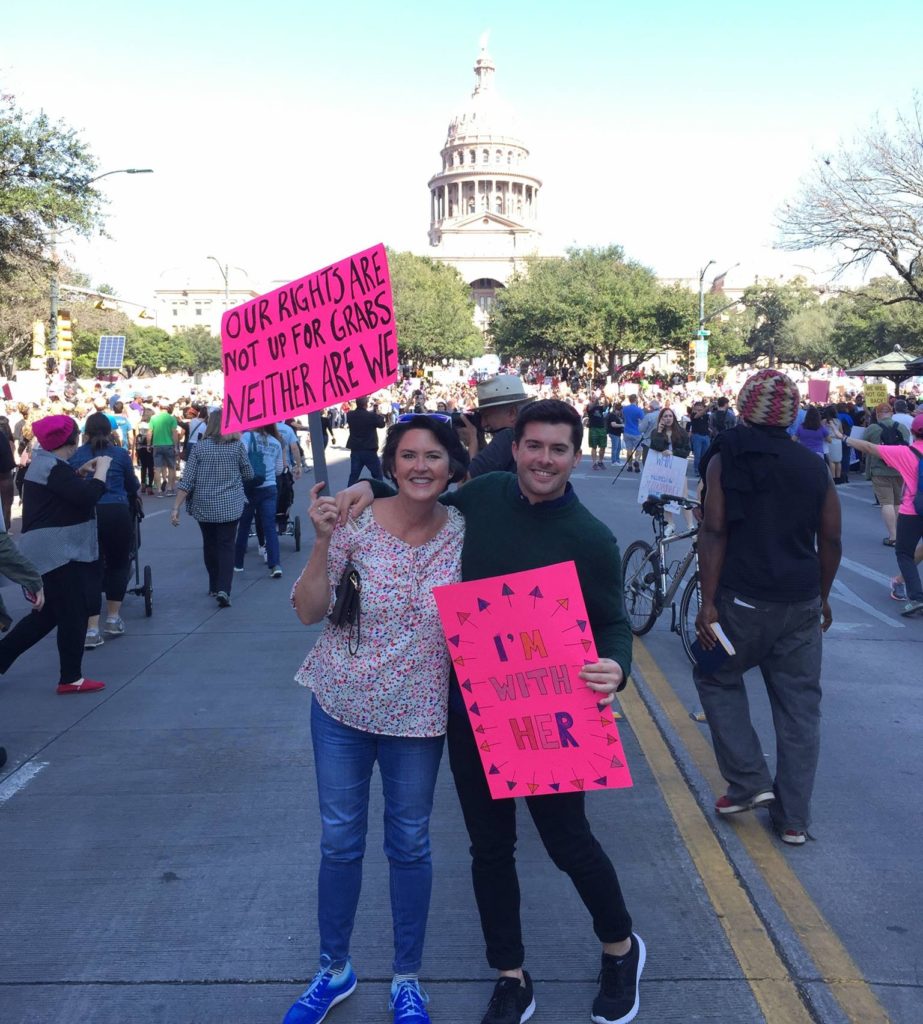
So I get to Paris and I thought I’d come out on day one, or just live my own life. I didn’t need to come out, because I didn’t know anyone. But it was just going to be if it came up, I’d be like, yeah, I’m gay. But when you’re not used to saying that or you’re not used to living that life, it just doesn’t flow off the tongue that way. So it came up at parties, you know, people would be like, “Do you have a girlfriend or a boyfriend?” And the same lie would come out; it would just tumble out, and then once it’s out, it’s hard to be like, “I’m sorry, I don’t know why I just lied to you!” So you perpetuate it.
PIP: What gave you the courage to finally come out?
AB: I had finally got to the point in Paris where I was like, oh my God, I have botched this experience! I’m going to be moving back to America in the like four months, and I will not have accomplished the one reason I came here. That was the one reason. It wasn’t for me No. 1 to learn French, it was No. 1 for me to finally come out and then be ready to live that truth when I got back to the U.S. and to come out to family and high school and college friends.
I was on a road trip in the UK with my friend Kenzie. We were at a bar in London overlooking the Thames, and I don’t know what made me feel comfortable at that moment or what she must have said or how we got on the conversation, but I just said, “You know, I’m gay.” And it was totally fine. She was like, “Oh, well that puts some of the discussion to rest.” It was such a non-issue. And the rest of that road trip was so great. That was really the first person I had fully verbalized that I was gay to, was Kenzie.
But then I took a trip to Istanbul with Claire, someone I met studying abroad who quickly became one of my best friends. I’d say the trip in Istanbul was so important for me in accepting who I was, specifically because of Claire. I remind myself of her advice a lot of times, especially when I meet young people who are trying to accept themselves.
Claire and I were in a bunk bed in a hostel in Istanbul. And she goes, “You know, when you go back home and you come out to your family and friends, fuck whoever doesn’t accept you. I’m your family now. Your friends are your family now. So if you don’t have family because they didn’t accept you, fuck them, and we will be your family.”
And that was the first time I’d ever gotten to the point I think in my life where I had accepted myself to the point where I was willing to lose everything else for it to fully accept myself.
I was willing to lose my parents, I was willing to lose my grandparents, my cousins, my friends. It didn’t matter anymore. It was more important to live my life as truthfully as possible. I think that’s the threshold most gay people have to reach. They have to really say, “I’m on that path and nothing else matters at that moment.” That’s how it happened.
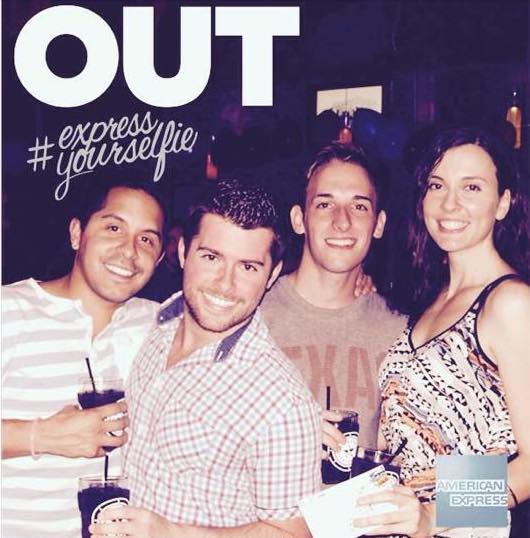
PIP: That’s amazing. So I know you’ve been very successful in the business world. What has it been like being gay in the workplace, and how do you balance that as part of your identity?
AB: Yeah, you know, I have been so lucky in my career thus far and have received a number of accolades, which are just so humbling. It’s so nice to feel recognized in your industry, and it doesn’t stem from the fact that I’m gay or LGBT. It’s purely based on on my merit as a buinessperson, as a marketer.
For me, business has become a very important part of my life, and marketing in general. I will never forget, it was right when I graduated undergrad. I was talking to a friend’s dad who was a relatively successful businessperson in his own right. And we were talking, I was struggling to find a job, I think as most young recent college grads do. We were just talking about what I was applying for and what I was doing. He made this comment, and I don’t think he had any malicious intent about this; I think he coming from a place of trying to give advice. But he said, “If you potentially change your voice or the way you talk, you might do better in interviews.”
What he was saying was, if you didn’t sound gay, you might come across with more authority or you might be respected differently in the interview by the recruiter or hiring manager or whatever. My response to him was, “I do not want to work for someone that I feel like I have to change my voice for.”
I still feel that way today. Him saying that to me and that be my immediate response was so telling to me how the previous 12 months, like what a journey I’d gone on from acceptance. Because it was about 12 months from the time I’d come out.
I do find the balance somewhat difficult, even today when I’m at work. Because it’s not like your sexuality is something that comes up on a regular basis in meetings at work, but my sexual identity is such an integral part of who I am, and really the way I view it now is, I just won’t compromise that for anything. If the question comes up at work, I answer it flat out, straightforward, I have a partner, his name is Anthony. It’s such an important part to me to live authentically at work as well. You never know who you’re talking to, especially in a business setting. Because a lot of times, you don’t get to know those people necessarily on a personal level, what they really think about from a politics standpoint or on social issues.
Sometimes it’s a little leap of faith every time I do mention it to someone that I don’t know well that I have a boyfriend, that I have a partner I live with whose name is Anthony. And every time you say it, there’s this little bit of a pit in my stomach, where I say if this is a person of power at my company, could that be a reason that they wouldn’t want to bring me up through the ranks, or give me a promotion, or would they think less of me than my heterosexual colleague, male or female, potentially.
It’s one of the few things where I think in some regards, some people see LGBT people less than potentially they would even a heterosexual female in the workplace. So you just realize at that moment that you are a minority, especially in the workforce. And that you just hope that you work in a place where people understand how to compartmentalize who you are personally with the business value and merit that you bring to driving business results. It’s definitely interesting.
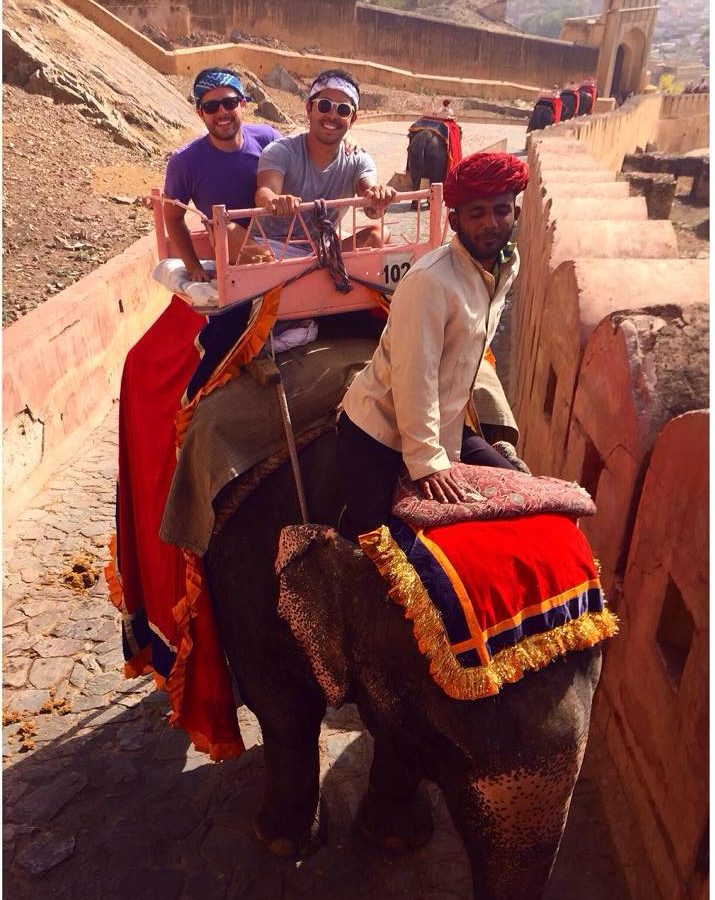
PIP: That makes sense that it can be a challenge in some situations. Can you talk about how being gay has been a positive or benefit in the workplace for you?
AB: Absolutely. There are a couple things. So this year, I was recognized on Forbes 30 Under 30 for marketing and advertising. I was shocked and thrilled. So first off, I got that because of the role that I hold at IBM and the impact that I bring to that organization. But also in the interview, I was very, very open with my sexuality. Moreso than I would ever be in my normal day-to-day function at IBM or anywhere, really.
It’s not something that anyone necessarily brings up at work, but I felt that it was really important to recognize businesspeople that are also LGBT on lists like that. I think a lot of times, people forget we’re a minority too, and that we deal with just as many challenges as other groups that feel marginalized. So that Forbes 30 Under 30 list, I am positive that it was a factor of me making the list that I was LGBT.
I also think just from my job, especially in marketing and advertising, so much of my job is to understand another’s point of view and then find the most compelling way to communicate to them. I mean, at the end of the day, I’m trying to get someone that sees my marketing and advertising to feel a certain emotion and to make an action. Hopefully to do business with IBM.
And I believe that going through the hardship and difficulty of coming out and living authentically and having it not just be a given that you can live your life who you are does give me a certain empathy and ability to see the world through a different lens, through other peoples’ eyes, that I probably wouldn’t have if I hadn’t gone through my coming out experience and had difficulties accepting who I am.
I think as a marketer and advertiser, it does help to be able to see other walks of life and to understand that not everyone’s journey is the same and that other people can look on the outside like everything is perfect, but have such internal turmoil. And it helps me when I’m developing advertising creative, messaging to be able to speak to people who are not me. I might not identify directly with their experiences, but I know I can sit there and put myself in other peoples’ shoes better because of the journey I’ve had to take.
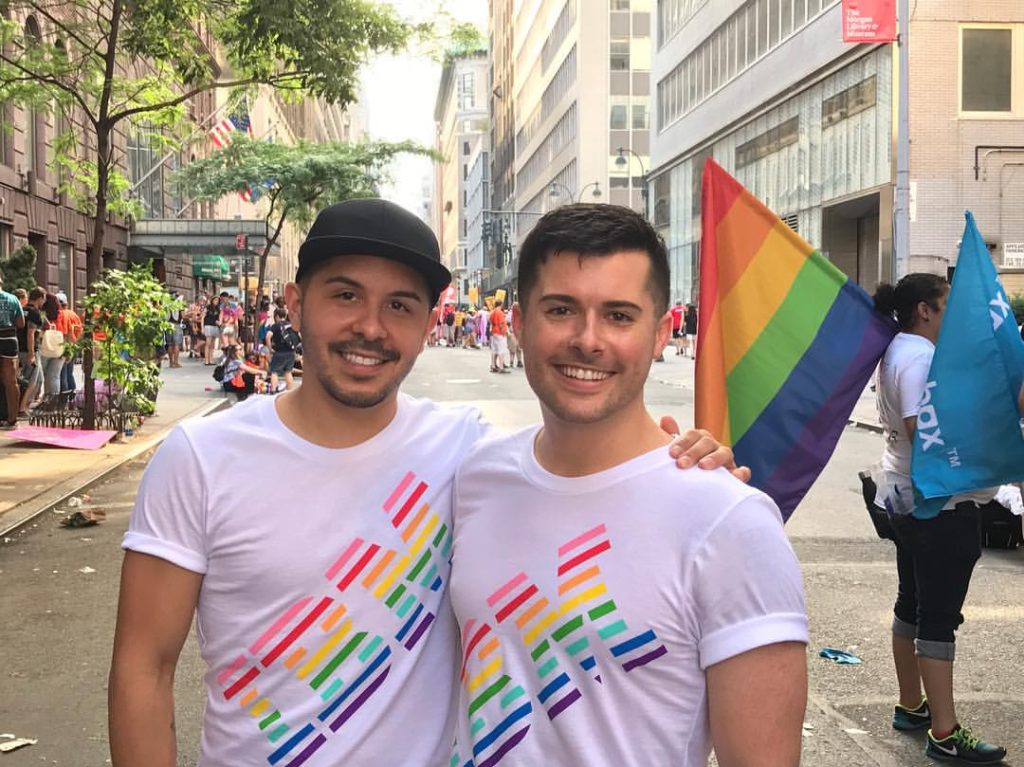
PIP: It sounds like IBM has been a really supportive environment for you.
AB: Yes, I want to give a small shoutout to IBM, because it has built a culture of inclusiveness that I’ve never seen at another company. I think a lot of companies have good reputations, like Google and Apple, for being accepting. But the inclusiveness that I see at IBM is just so apparent. During Pride, developing the eight-bar IBM logo in rainbow. And there was communication after communication during Pride week when out IBM executives would tell their story, and those would go out companywide. Our chief marketing officer came to our LGBT networking event in New York and told her story of her uncle who died of AIDS.
I just feel like it’s an open forum; there’s an open dialogue happening at IBM about LGBT rights and our place in the workforce and our place at IBM and how they value our voice. I do feel like that’s so important to recognize, because not every company is like that. It’s such a part of the culture.
They even give you the ability to have your photo avatar internally to have the rainbow flag over it, so anybody who sees your photo in the entire company knows you’re LGBT. It’s things like that, where they build it into the dialogue you have, and it just knocks all the barriers down for you.
Like what you read? Keep up with Andy on LinkedIn and Instagram.

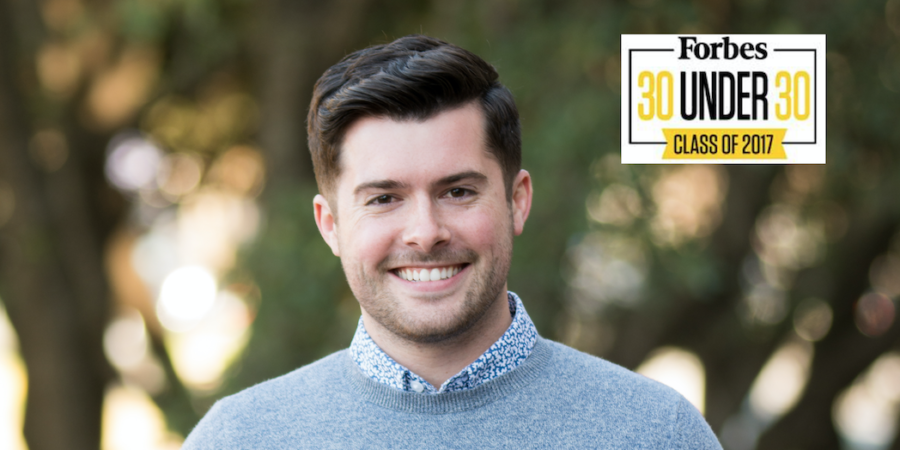
[…] This article was originally published from Profiles in Pride. You can find the original article here. […]